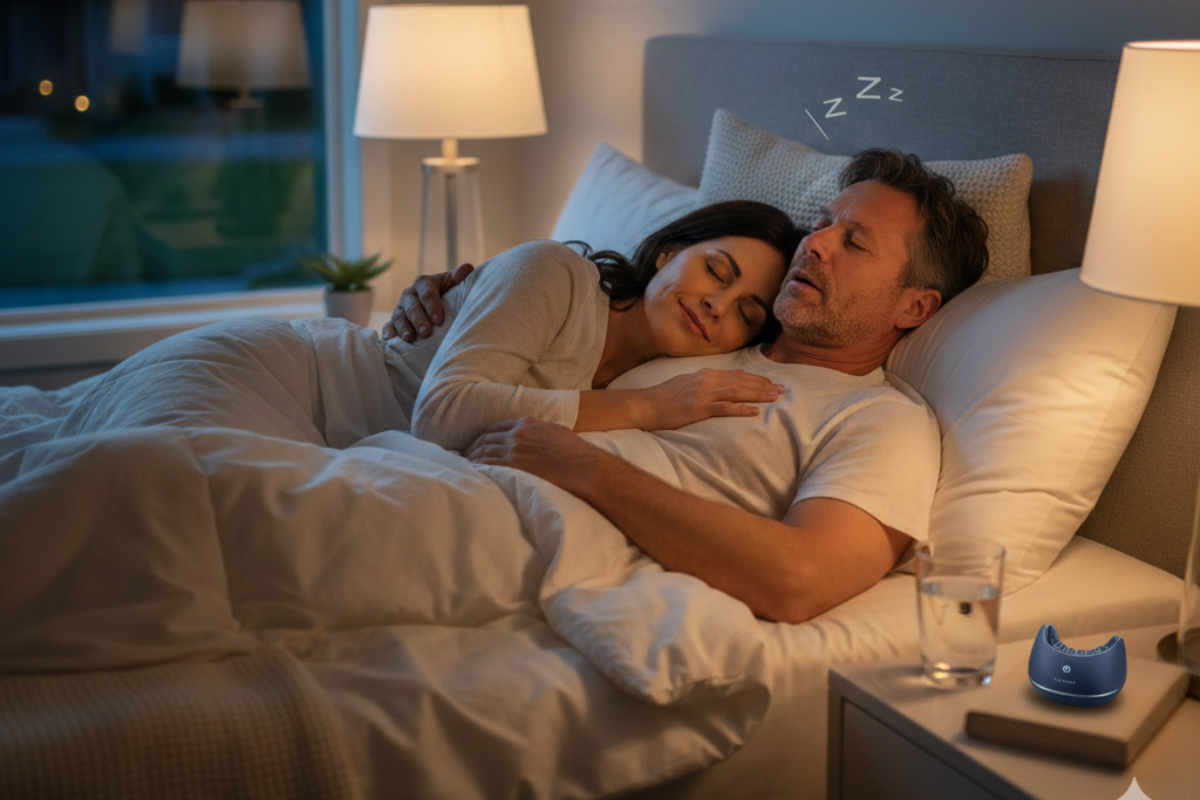Free Shipping - On Orders Over $99 (USA, Canada, UK, & AU)

Simple Tips For Better Sleep During The Holiday Season
December 22, 2017 3 min read
The holidays tend to cause a variety of disruptions to many of our normal routines. Sometimes we don’t even realize the impact these changes have on our health until we fall ill or become tired and irritable.
Despite the hectic holiday season involving busy schedules, abnormal eating patterns, and travel away from home, there are still things you can do to help yourself get a good night sleep so you can power through all you need to accomplish. Here are some simple strategies you can use to help you sleep better during periods that interrupt your normal lifestyle.
Bring These Items with You While Away From Home
Try using a device or phone app that produces white noise while sleeping at a hotel or the home of friends or relatives. White noise helps drown out environmental noises that can prevent you from sleeping and wake you up.
It’s not necessarily noise in general that can disrupt sleep, but it is changes in the consistency of sounds in your surroundings. White noise is helpful for managing disruptive noise by providing a consistent sound that can be heard at all audible frequencies. You might find you’ll receive the most benefit from using a white noise device at home first to get used to it before travelling.
Whenever you travel away from home, try to bring along items you are familiar with and that you already associate with sleep. Having personal items with you such as a favorite pillow, scented candle or blanket while staying overnight in unfamiliar surroundings can help you relax and sleep better.
Manage Your Stress Levels
Under any amount of stress, the brain produces the energizing hormone cortisol which interferes with the production of the sleep-promoting hormone melatonin. Cortisol levels will likely increase when you hit the pillow and start thinking about Christmas to-do-lists, deadlines, travel plans, and other potentially stressful situations. To sleep, you need to find strategies to effectively manage this stress.
Try using a journal throughout the day to write down your stressors. Writing down your worries during the day rather than dwelling on all of them at night helps to diffuse your stress throughout the day. If you still find yourself worrying at night, get out of bed and distract your mind with a quiet activity such as reading a non-fiction book, folding laundry or doing a crossword puzzle until you feel you are ready to try to sleep again.
Keep an Eye on Your Diet
While fancy meals and decadent desserts are one of the greatest parts of holidays, they can also be an opportunity for overindulgence on sweet and excessively fatty foods which can disrupt sleep. Sugar increases insulin which encourages the production of the sleep-sabotaging hormone cortisol. Pay attention to what you eat if you have food sensitivities as these also cause cortisol levels to increase by causing inflammation in the intestinal tract.
Try to eat reasonable portions and focus on foods that make you feel your best. Eat well-balanced meals which include plenty of fruits, vegetables, whole grains, healthy fats, and lean proteins. Additionally, try to avoid eating late into the evening.
Curb Your Alcohol Intake
Many people enjoy a triple or two during the holidays, but much like overindulging on festive foods, alcohol can profoundly jeopardize sleep by interfering with the different sleep phases. Alcohol is known to interfere with deep sleep which is needed for cognitive and physical restoration.
Most adults experience five or six sleep cycles per night, but alcohol can reduce them to two and cause you to feel poorly rejuvenated even if you are sleeping. The dehydrating effect of alcohol also causes you to get thirsty which results in you waking during the night. Here’s a tip if you are going to drink alcohol: Try drinking a glass of water between each alcoholic beverage and don’t drink on an empty stomach.
Also in Blog

Healthy Sleep Goals For 2026
December 22, 2025 6 min read

💨 Are Your Nighttime Breathing Issues Robbing You of Your Health and Your Energy?
December 12, 2025 3 min read
Breathing issues during sleep, collectively known as sleep-disordered breathing, are a major public health concern.

Is Your Snoring a Sign of Something More Serious? Unpacking the Science of Sleep
December 05, 2025 3 min read
When you snore, what's actually happening?
Join our Insiders Club
Every week you will receive specials, discounts, and giveaways.
Categories
- Better Sleep
- depression
- Fitness
- funny animal
- Global Citizenship
- health
- Mental Health
- mouthpiece
- nutrition
- pillow
- Productivity
- relationships
- sleep
- sleep apnea
- sleep deprivation
- Sleep Tech
- snoring
- snoring humor
- snoring jokes
- snoring sounds
- stop snoring
- StopSnoringStartLiving
- technology
- Tongue displacement
- travel
- video
- Young Adult

